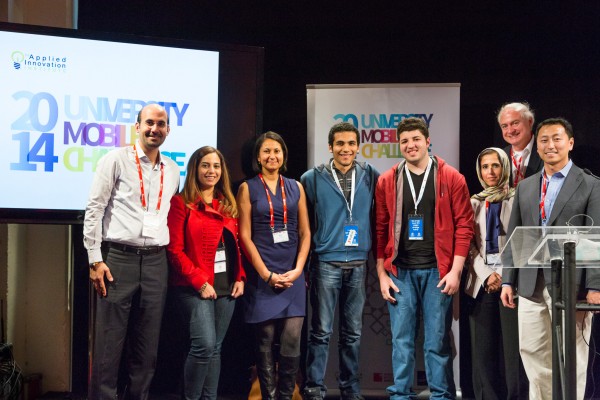Batman, Superman & Deadpool: The Rise of Comic Subculture in Egypt
BY HEBA FOUAD
@HEBAMSALAH
Superhero films appear to be getting more popular than the comic books that inspire them [Adham Giratalla]The premiere of Batman vs. Superman: Dawn of Justice is a testament to the success of merged superhero blockbusters, which have forced audiences, critics and educators to recognize the winning relationship between the film industry, comics and pop-culture.
People have been waiting for this epic hype for three years.
“You have two of the most well known names in comics, Superman and Batman – they are not characters you need to introduce to the people who don’t read comics,” economics senior Adham Giratalla told The Caravan.
Giratalla alluded to the market of superhero comic book fanatics that is expanding among Egyptian audiences.
A survey conducted by The Caravan showed that 79 percent of undergraduate students at AUC started showing interest in comic-based movies only after they started to become mainstream.
Professor of Rhetoric and Composition Iman Hamam teaches the course Research Writing and the constant theme in her class has been of comics and superheroes since 2011.
The students in her class try to link these particular movies, characters and comics to “the current state of war” – referring to the troubles the Middle East faces.
“I want my students to try and find why there is a huge interest in these movies, and whether there is a psychological thing that makes us have an affinity to the storyline that makes them appealing to us,” Hamam told The Caravan.
Hamam said that sociopolitical factors might help determine why this superhero trend exists and continues to thrive.
The market expansion for fans of this pop-culture is due to the difference noticed in the production industry in recent years.
Ahmed Abaza, owner of Kryptonite Comic Stores in Egypt, expressed his point of view regarding the rising trend in Egypt.
“[A majority of] third world countries like Egypt don’t read that much, but when they start seeing the characters on screen they start to be more interested in them,” Abaza said.
Abaza gave an example of the fictional character appearing in Marvel Comics, Tony Stark, to illustrate his point.
“Most Egyptians did not even hear about this character until only after Robert Downey Jr., the American actor, played his role in the 2008 movie Iron Man,” Abaza added.
Giratalla also mentioned Iron Man to emphasize his point of view by adding that he was a “B-list character in the comics” who became a hit with audiences when Robert Downey Jr. and Marvel Studios produced the award-winning movie.
This all ties into the idea of superhero characters gaining popularity solely because of high quality movie productions – rather than how likeable the characters are in the comic books.
Kryptonite is one example of the emerging subculture of comic-aficionados in Egypt.
“This pop culture needs to spread more, people need to know this form of art, and that its not only about comics, but statues and action figures as well,” said Abaza, who is also a fan of comics since he was “first able to see pictures and flip through [magazines].”
Furthermore, the annual ComicCon in Egypt, EGYcon – a fan-based convention held for comic book and anime fans in Cairo – emerged three years ago as part of the growing trend.
Although comic-based superhero movies are dominating theaters around the world, there are different arguments as to why they are not as good as they used to be.
“Recently there were these various articles written about the movie Star Wars, where the older films were with poorer quality as they didn’t have all these special effects,” said Hamam, emphasizing on the use of CGI visuals in these films.
Hamam said that when she watches superhero movies with her son, she is disappointed by the story-line.
“There is a tradeoff, spectacle and special effects at the expense of story-line and narrative, that’s what they changed,” Hamam said.
“So when we might argue in the past that the story and content were stronger, the effects for what they were at the time were pretty good, now the emphasis is on spectacle, and that is basically the movie industry, so people can go to be entertained,” Hamam said.
One of the survey responses said that with the exception to “The Batman Trilogy”, the story line is not as good as it used to be and the emphasis is more on visual graphics.
“There will be a time when the superhero movie [will] die,” American director Steven Spielberg once said in an interview with the Associated Press.
The number of superhero movies being produced recently is overwhelming, and Spielberg’s prediction is due to the large budgets the production companies allocate for these movies.
“Of course right now the superhero movies are alive and thriving. I’m only saying that these cycles have a finite time in popular culture,” Spielberg said.
Several responses from the survey said that a fictional world is created by the production companies that combine superheroes and help fans link them together; a strategy that would prevent the industry from dying.
For example, Marvel combined all characters to produce “The Avengers”, and DC Comics to produce “Justice League”.
“I still want to know the answer whether the fans in Egypt buy the comics and action figures because they admire them or to show off with them,” Hamam said.


![Superhero films appear to be getting more popular than the comic books that inspire them [Adham Giratalla]](http://www.auccaravan.com/wp-content/uploads/2016/04/batman-1024x767.jpg)


